If you feel you or a loved one may be experiencing fentanyl withdrawal, know that fentanyl rehab is available. Fentanyl addiction has become so problematic in the United States that it consistently makes the news. According to U.S. Customs and Border Protection, fentanyl takes the lives of over 150 Americans each day. Whether it’s a prescription version or an illegally manufactured form, this drug can cause a dangerous addiction to develop. Those who find themselves in the grip of it may want to get help but fear going through withdrawal. Buckhead Behavioral Health employs an expert medical staff who understand how to help people combat fentanyl withdrawal symptoms. With our help, recovery from a substance use disorder can include a variety of medications and psychological support that ease and eliminate many of the symptoms.
If you or a loved one is struggling with Fentanyl addiction, call us now at (470) 460-6789 or fill out the form below and one of our admissions representatives will reach out to you.
What is Fentanyl?
Fentanyl is a synthetic opioid drug that was developed in 1959 and initially used as an intravenous anesthetic. It is now commonly prescribed to individuals suffering from pain related to surgery, long-term, and chronic illnesses. It often helps people who do not find relief from other forms of prescription medication. Common prescription names for fentanyl include Duragesic, Sublimaze, and Actiq. The usage of fentanyl should be monitored by the prescribing physician due to its potential for the user to develop an addiction to it. Prescription fentanyl is manufactured in several forms, including tablets, sprays, lozenges, and patches.
Fentanyl is also manufactured and sold illegally across the country. It typically is made in tablet form or as a powder. Just like the prescription version, use of it can end up developing into an addiction. As with other illegally produced narcotics, unsafe additives can be part of the ingredients. This includes other drugs or things like household cleansers, making taking fentanyl even riskier when the user has no idea what’s in the dosage they take.
Fentanyl is a particularly potent drug. It is up to 50 times stronger than heroin and 100 times stronger than morphine. Classified as a Schedule II drug, this means usage of it brings with it a high potential for abusing it. This can lead to physical and psychological dependence. This means that once a person becomes addicted, they will need professional help to stop abusing it. Fentanyl withdrawal symptoms happen in the early stages of becoming sober, making it important to receive care from treatment professionals in order to address and ease them.
Fentanyl Withdrawal Symptoms
Fentanyl withdrawal symptoms vary per person. Factors include the length of the addiction, the typical dosage taken, and the person’s overall physical and mental health. There are common withdrawal symptoms experienced by many. These include:
- Nausea and vomiting
- Fever
- Sweating
- Insomnia
- Drowsiness
- Dizziness
- Flu-like symptoms
- Chills
- Muscular and joint aches
- Elevated heart rate
- Dehydration
- Cramping
- Hypertension
In addition, many people experience psychological and emotional withdrawal symptoms, including anxiety, depression, irritability, and moodiness.
Some people may feel tempted to try to go through fentanyl detox on their own. Doing an at-home fentanyl detox can be extremely dangerous. Medical staff with experience in treating addiction should supervise a person while they go through the initial stages of stopping the usage of fentanyl. They can monitor the person for withdrawal symptoms and provide assistance that keeps them medically safe and more comfortable.
Another concern about trying to quit abusing fentanyl alone is that going off the drug for even a short period can cause the person to develop a reduced tolerance for the drug. When they go back to taking the drug at their usual elevated amount, they risk overdosing and even death.
How Long Does Fentanyl Withdrawal Last?
Fentanyl withdrawal can very depending on a number of factors, including the length and intensity of use, metabolism and health. Typically fentanyl withdrawal can last between seven and 14 days, however is categorized into two phases, acute and post-acute.
Acute Withdrawal Phase
Acute withdrawal begins a few hours to a day after the last dose of fentanyl is taken. Symptoms are most intense during this phase and can include muscle and bone pain, sleep disturbances, flu-like symptoms, and more.
Post-Acute Withdrawal Syndrome
After the initial withdrawal phase, some individuals experience a longer withdrawal phase known as Post-Acute Withdrawal Syndrome, or PAWS. PAWS can last from several weeks to several months. PAWS is characterized by less intense but more persistent symptoms, primarily psychology and mood-related and can be accompanied by anxiety, depression, irritability, fatigue, sleep disturbances and ongoing cravings.
Fentanyl Withdrawal Timeline
Someone concerned with fentanyl withdrawal symptoms often wonders how long they last. While each person’s experience may vary, the general guideline for the fentanyl withdrawal timeline is as follows:
Day 1: Withdrawal symptoms typically begin within 12 hours of the last dosage of fentanyl. Common symptoms include headaches, muscular aches, sweating, anxiety, and moodiness.
Day 2-4: Withdrawal symptoms peak during this time, which means they are at their most intense. Common ones include nausea, vomiting, diarrhea, difficulty sleeping, loss of appetite, and anxiety.
Day 5-10: Symptoms begin to decrease during this time and some stop completely. For many people, the emotional symptoms exist longer than physical ones, including feeling anxious or depressed.
Anyone who continues to experience withdrawal symptoms after the initial detox phase or early recovery can consult with their physician or therapist. Different types of therapy and medication can be used to help combat these withdrawal symptoms while the person continues to work on learning to stay sober.
Fentanyl Detox & Treatment
When someone develops a fentanyl addiction, they need a professional drug rehab program. Program options start with detox and then continue to either residential rehab or outpatient care. Detox typically lasts five to ten days and can be done on an outpatient basis. Residential care requires a person to reside in a treatment facility for 30 days or more while receiving continual care day and night.
For many, outpatient care provides everything they need to address and overcome their addiction. These options include regular outpatient programs, intensive outpatient programs, and partial hospitalization programs. An assessment by experienced addiction clinicians will determine which type of program is right for each individual. This will also help figure out the length of treatment needed, which can be adjusted as the person progresses through it.
Types of therapy that prove effective in treating substance use disorders include:
- Psychiatry
- Red Light Therapy
- Family therapy
- Trauma therapy
- Holistic therapy
- Medication-assisted treatment
- Brainspotting therapy
- Individual Psychotherapy
Fentanyl Withdrawal Medications
Specific medications can be used to help manage the ease of fentanyl withdrawal. Common medications include:
- Naltrexone: Naltrexone is an opioid antagonist that blocks the effects of opioids at their receptor sites in the brain. Naltrexone is used after the completion of detoxification to prevent relapse. It doesn’t alleviate withdrawal symptoms but can help maintain sobriety by reducing the desire to use opioids.
- Vivitrol (Extended-Release Naltrexone): Vivitrol is an injectable, long-acting form of naltrexone. Given monthly, it helps people in recovery from opioid addiction by blocking the euphoric and sedative effects of opioids.
- Sublocade (Buprenorphine Extended-Release): Sublocade is a monthly injectable buprenorphine product used in the treatment of opioid use disorder. It helps reduce opioid cravings and withdrawal symptoms. Being a partial opioid agonist, it produces fewer euphoric effects and is less likely to be abused.
- Clonidine: Clonidine is primarily used to treat high blood pressure, but it can also be effective in managing opioid withdrawal symptoms. Clonidine can alleviate symptoms like anxiety, agitation, muscle aches, sweating, and runny nose, but it does not reduce cravings.
- Lofexidine (Lucemyra): Similar to clonidine, lofexidine is a non-opioid medication used to reduce opioid withdrawal symptoms. Approved by the FDA specifically for opioid withdrawal, it can ease symptoms such as sweating, nausea, vomiting, muscle pain, and agitation.
- Methadone: A long-acting opioid agonist that reduces cravings and withdrawal symptoms by acting on the same opioid receptors in the brain as fentanyl, but with a slower onset and longer duration of action. Methadone can be tapered down slowly under medical supervision to ease the detox process.
- Buprenorphine (Suboxone, Subutex): This is a partial opioid agonist that helps in reducing cravings and withdrawal symptoms. Suboxone, a combination of buprenorphine and naloxone, is commonly used. Naloxone is added to discourage misuse of the medication.
- Benzodiazepines: In some cases, benzodiazepines are used to manage severe anxiety and insomnia during withdrawal. However, they must be used with caution due to the risk of addiction and need to be prescribed and monitored by a healthcare professional.
- Symptomatic Medications: These include anti-nausea drugs, antidiarrheals, and NSAIDs to manage specific symptoms like nausea, diarrhea, and pain.
Find Treatment for Fentanyl Withdrawal Today
Have you recognized you have an addiction and want to get help? If so, the fear of fentanyl withdrawal symptoms may hold you back from entering treatment. Buckhead Behavioral Health knows how to help ease the withdrawal symptoms that often occur when someone stops using a substance such as fentanyl. We can provide medications, including ones that directly target fentanyl withdrawal, in order to minimize the discomfort that occurs during the early days of recovery. Our outpatient programs provide multiple ways to help you conquer your addiction, including therapies that prove effective when used to treat substance use disorders.
If you would like to get more information about how we can help you or someone you love to overcome addiction to fentanyl, visit our admissions page now. It’s easy to find out how to get started and leave drug abuse in your past.
Related Articles
- Fentanyl Addiction in Young Adults
- How Long Does It Take to Detox from Fentanyl?
- How Long Does Fentanyl Stay in Your System?
- What is Rainbow Fentanyl?
- Buckhead Behavioral Health Launches Narcan Initiative
- The Atlanta Opioid Epidemic










